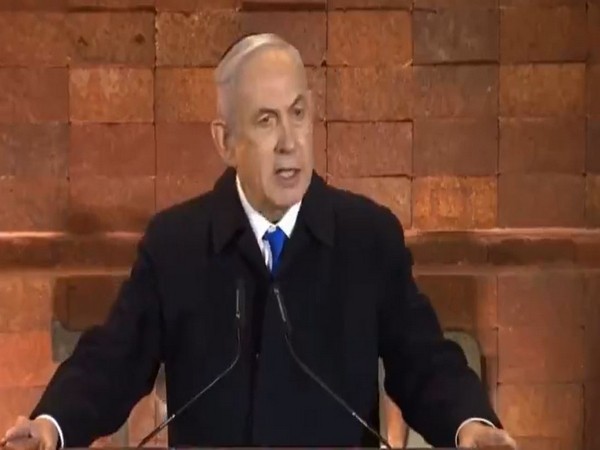
The Israeli prime minister's big gamble between the red line
May 10, 2024
Tel Aviv [Israel], May 10: Israeli Prime Minister Benjamin Netanyahu is facing strong pressure from his US ally as well as the international community amid his decision to take the biggest gamble of his career called Rafah.
Public warning
In an exclusive interview with CNN on May 8, US President Joe Biden said his administration would stop supplying weapons to Israel if the allied country launched a major attack on Rafah. Israel's ambassador to the UN said yesterday that America's suspension of weapons transfers could significantly reduce Israel's ability to achieve its military goals. This is the first time Mr. Biden has publicly announced this decision when he is facing great pressure domestically, even within his Democratic Party.
Mr. Biden's policy with Israel related to the war in Gaza is a hot topic, especially as the presidential election is approaching. On the one hand, he issued an ultimatum about Rafah, on the other hand, he affirmed that the US does not abandon Israeli security, so it continues to provide defense weapons to Israel, including the Iron Dome system.
It must also be stated clearly, Mr. Biden on May 8 emphasized that Israel has not yet crossed the red line of attacking the densely populated area in Rafah even though it has caused tension in the border area with Egypt. Rafah, a city in southern Gaza, is currently home to more than 1 million civilians and refugees, half of whom are children. Mr. Hamish Young, UNICEF coordinator in Gaza, yesterday emphasized that Rafah "is hanging on the edge of the abyss" and those remaining in the city are living in extremely worrying conditions.
President Biden admitted that US bombs and ammunition supplied to Israel were used to kill civilians in the Gaza Strip, where Israel has conducted a military campaign for the past 7 months in retaliation for a deadly attack by Hamas forces. present in southern Israel on October 7, 2023. According to statistics from Gaza health authorities, Israel's campaign has so far killed nearly 35,000 Palestinians, mostly civilians.
Risky gamble
UN Secretary General Antonio Guterres warned that if Israel landed an attack on Rafah, it would be "a strategic mistake, a political disaster and a humanitarian nightmare". Israeli Prime Minister Netanyahu has been steadfast in recent weeks with his statement that he will conduct an operation in Rafah to completely destroy Hamas. According to the Financial Times , this decision marks one of the biggest gambles of Mr. Netanyahu's political career.
Delaying the operation to rescue the hostages would make Hamas happy, but rejecting the ceasefire agreement and deciding to launch an all-out attack on Rafah could cause Israel to cross America's red line and threaten the lives of the hostages who are still being held. detention. More than 100 hostages in the hands of Hamas have been the most awkward problem for Mr. Netanyahu in recent months.
Faced with this difficult choice, Mr. Netanyahu seems to have chosen to "buy time". Air strikes continued, the Rafah border crossing with Egypt was controlled and Israeli tanks entered the eastern edge of Rafah on May 8 to put pressure on Hamas. At the same time, a negotiating team went to Cairo (Egypt) to discuss the possibility of reaching an agreement with Hamas on terms acceptable to Israel.
Critics see this as a tactic for Mr. Netanyahu to appease far-right members of the ruling coalition, while avoiding having to accept a deal that could cause his government to collapse. Supporters believe that Mr. Netanyahu is calculating to negotiate profitably. "He is trapped between dissenting groups in the cabinet, in Israeli public opinion and between the fate of the hostages and the goals of pursuing the campaign, as well as relations with the US," according to political strategist Nadav Shtrauchler worked with Prime Minister Netanyahu.
Observers say that Hamas's unexpected agreement to a ceasefire agreement puts Netanyahu in an even more difficult position. Israel refused on the grounds that some words were not correct as discussed. According to The Guardian , Mr. Netanyahu's future political fate is partly in the hands of Israel's far-right ministers. He really faced a dilemma.
Source: Thanh Nien Newspaper


![Dr. Raghupati Singhania, CMD, JK Tyre & Industries and jury members presented Indian Car of the Year [ICOTY] 2025 award to Mahindra & Mahindra team](https://worldnewsn.s3.amazonaws.com/media/images/ANI-20250111122719.jpg)






